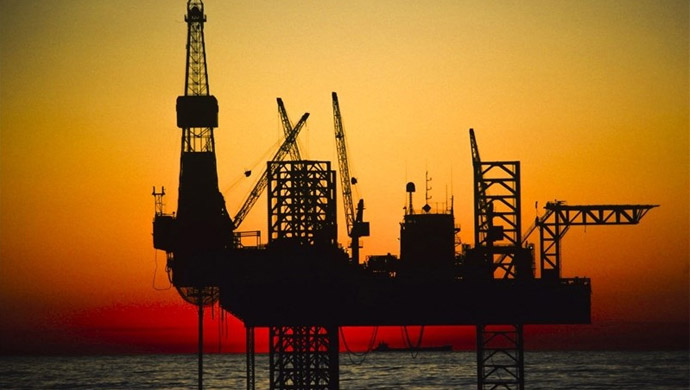Iran’s oil exports have reached pre-sanctions level, regime president Ebrahim Raisi claimed on March 31. In a meeting with a group of clerics on March 31, Raisi said, “The country was in a state that some officials said that if anyone manages to sell 200,000 barrels of oil, we will appoint him as the oil minister. But today, oil sales have returned to the levels before the sanctions and the revenue from oil sales is returning to the country.”
Reflecting on the ongoing negotiations in Vienna over the regime’s nuclear program, Raisi said, “We absolutely won’t tie the people’s lives and the economy to the [nuclear deal] and negotiations. Whether the negotiations reach a conclusion or not, we have our own plans to run the economy.”
Raisi’s remarks come while the negotiations have stalled over the regime’s demand to remove the Revolutionary Guards (IRGC) from the U.S. list of Foreign Terrorist Organizations (FTO) as part of the deal.
With little transparency into the regime’s oil operations, it is hard to verify Raisi claims. It is worth noting, however, that on March 19, oil minister Javad Owji had given a different assessment. “In parliament, lawmakers decided to raise the ceiling of exports of oil and condensates from 1.2 million barrels (per day) to 1.4 million barrels. The Oil Ministry will do everything in its power to realize the level set in the budget,” Owji told state television at the time.
But on April 1, Owji told the regime’s state-run television that oil production had reached more than 3.8 million barrels per day and confirmed that the regime had increased oil sales despite sanctions still being in place.
“We identified new markets, engaged in strong marketing, used different types of oil deals, and found new customers, and used devoted and experienced staff in the industry to reach higher levels of sales in oil and natural gas condensate,” Owji said. “Our export capacity at the same time last year was very low, especially in condensates, but with the efforts of our colleagues in the industry, we are ready to further increase sales next year.”
What is certain is that the regime has increased its oil production and revenue thanks to several factors. First, considering the nuclear negotiations and the West’s penchant to avoid causing tension, the regime has adopted a more aggressive approach toward circumventing oil sanctions. Some reports indicate that the regime is shipping its oil in vessels flying the flags of other countries, though most of it is going to China at prices lower than the market.
Second, the regime is benefiting from the growing price of oil due to the ongoing Russian invasion of Ukraine. And at the same time, the Revolutionary Guards and its proxies in the region are conducting missile and drone attacks against oil facilities in neighboring countries to keep oil prices high.
But all of this begs many questions: if the regime has in fact managed to increase its oil sales in 2021 and bring the money home, why has the price of food increased by an average 52 percent? Why has inflation increased to 40.2 percent according to the regime’s own Statistical Center? Why is the government planning to increase the price of gasoline to cover its budget deficit? Why is the regime removing subsidies from medicine? Why is the regime refraining from increasing the wages of teachers despite months of nationwide protests? And, finally, why has the price of housing increased to the point that many people are sleeping on rooftops, in buses, or in graves?
These and many other facts indicate that the Iranian economy has continued to tank in the same period that the regime has increased its oil revenues.
On the other hand, the regime has increased its terrorist activities in the region, the development of its ballistic missiles and underground missile facilities, its development of nuclear weapons, and the bolstering of its security and censorship apparatus, instead of investing the added revenues in the economy and improving the welfare of the Iranian people.
Indeed, the regime continues to ship weapons, drones, and missiles to terrorist groups in the region to wage war and destabilize the region.
All of this proves once again that the regime prioritizes its hold on power over anything else, including the livelihoods of more than 80 million people living in Iran, 60 million of whom are living under the poverty line.
Raisi was right on one thing in his March 31 remarks: The people’s lives and Iran’s economy are not tied to the nuclear negotiations, nuclear deal, or the lifting of sanctions. The situation will only improve when the mullahs’ regime is overthrown and replaced with a democratic state.





